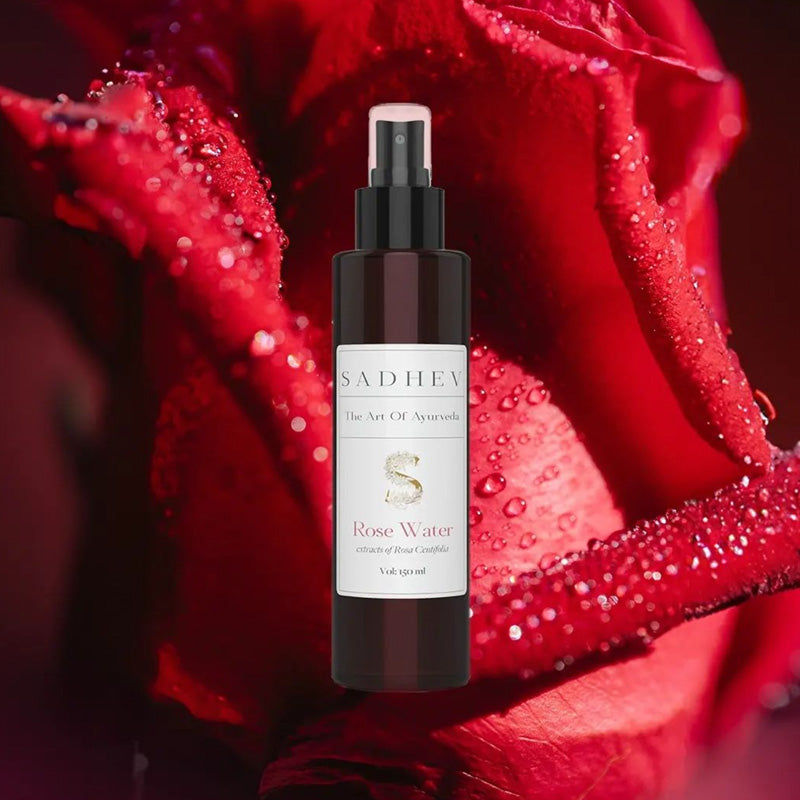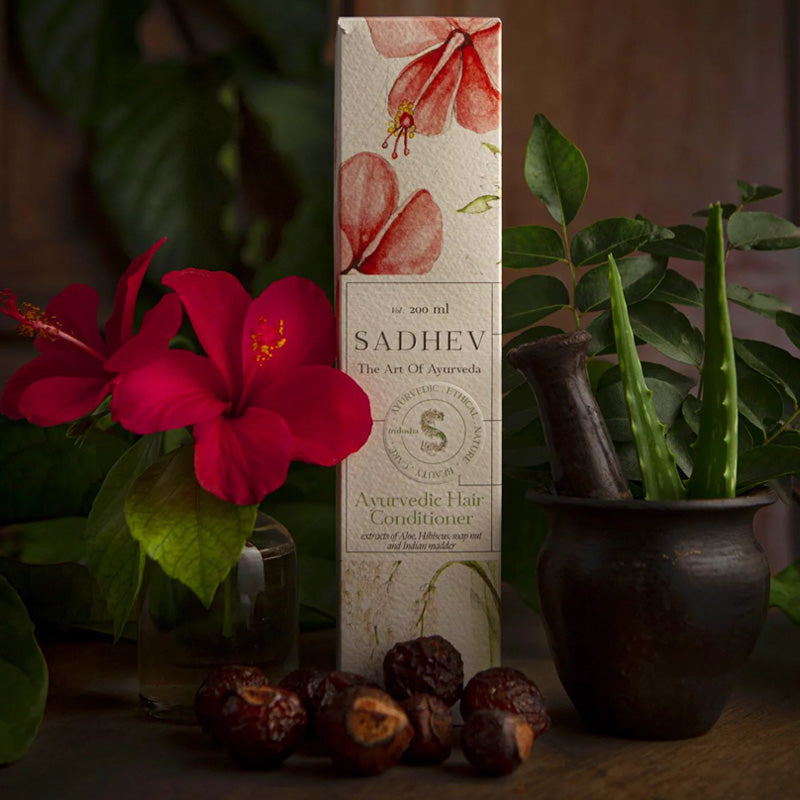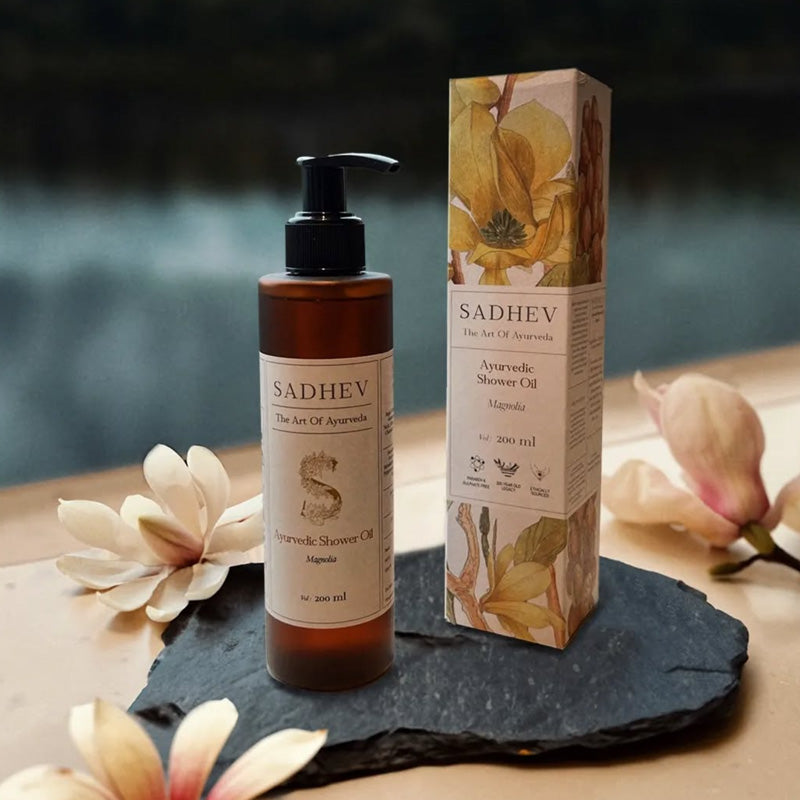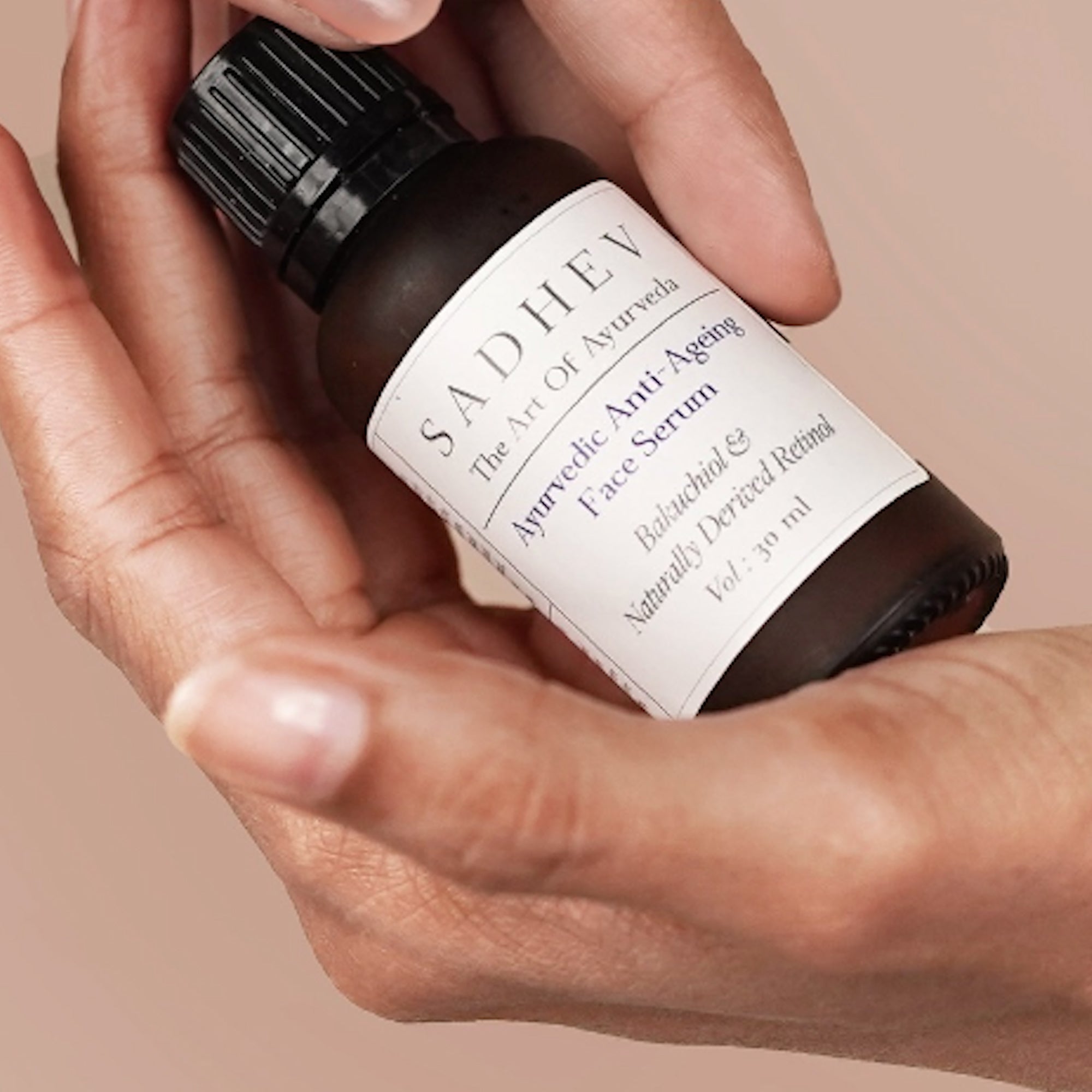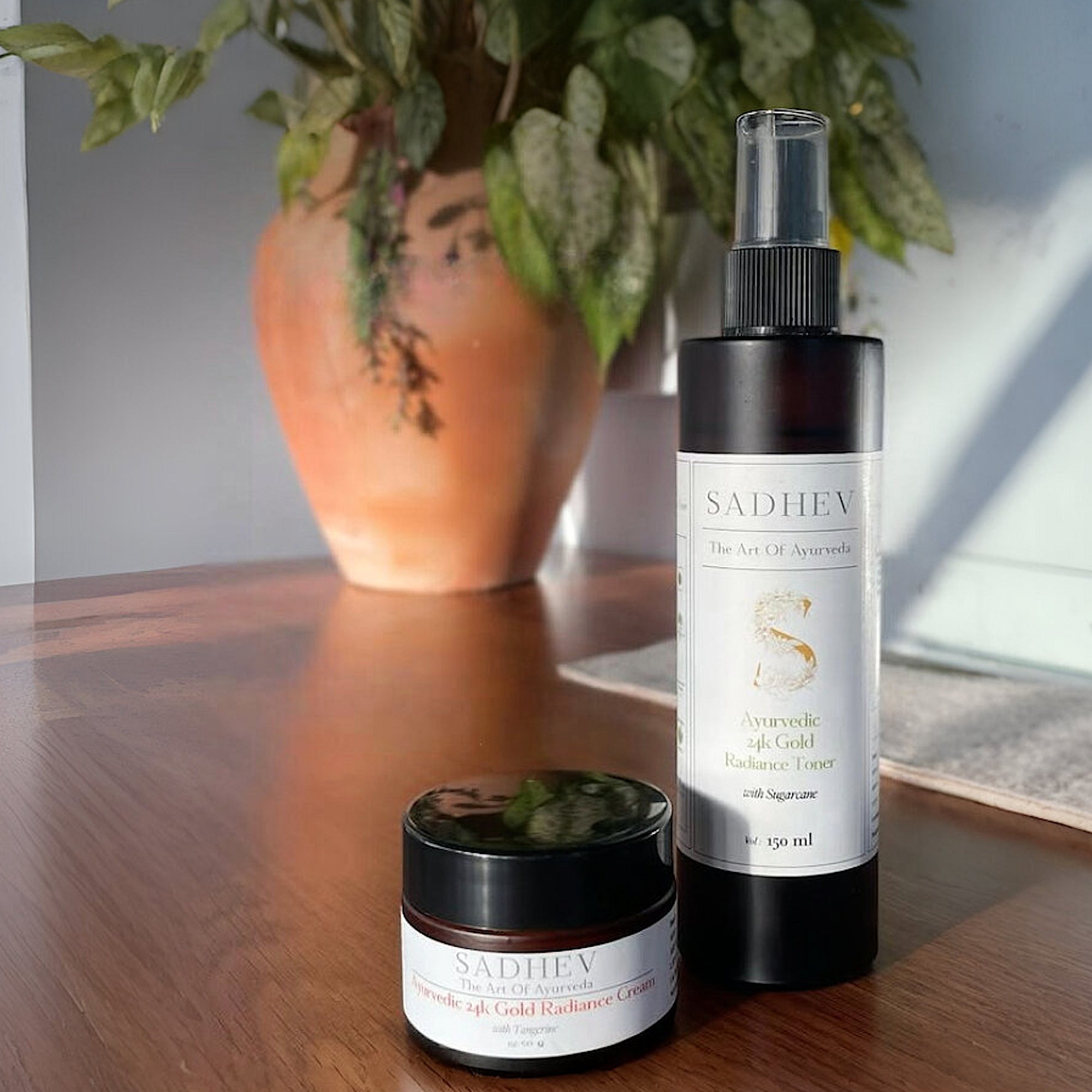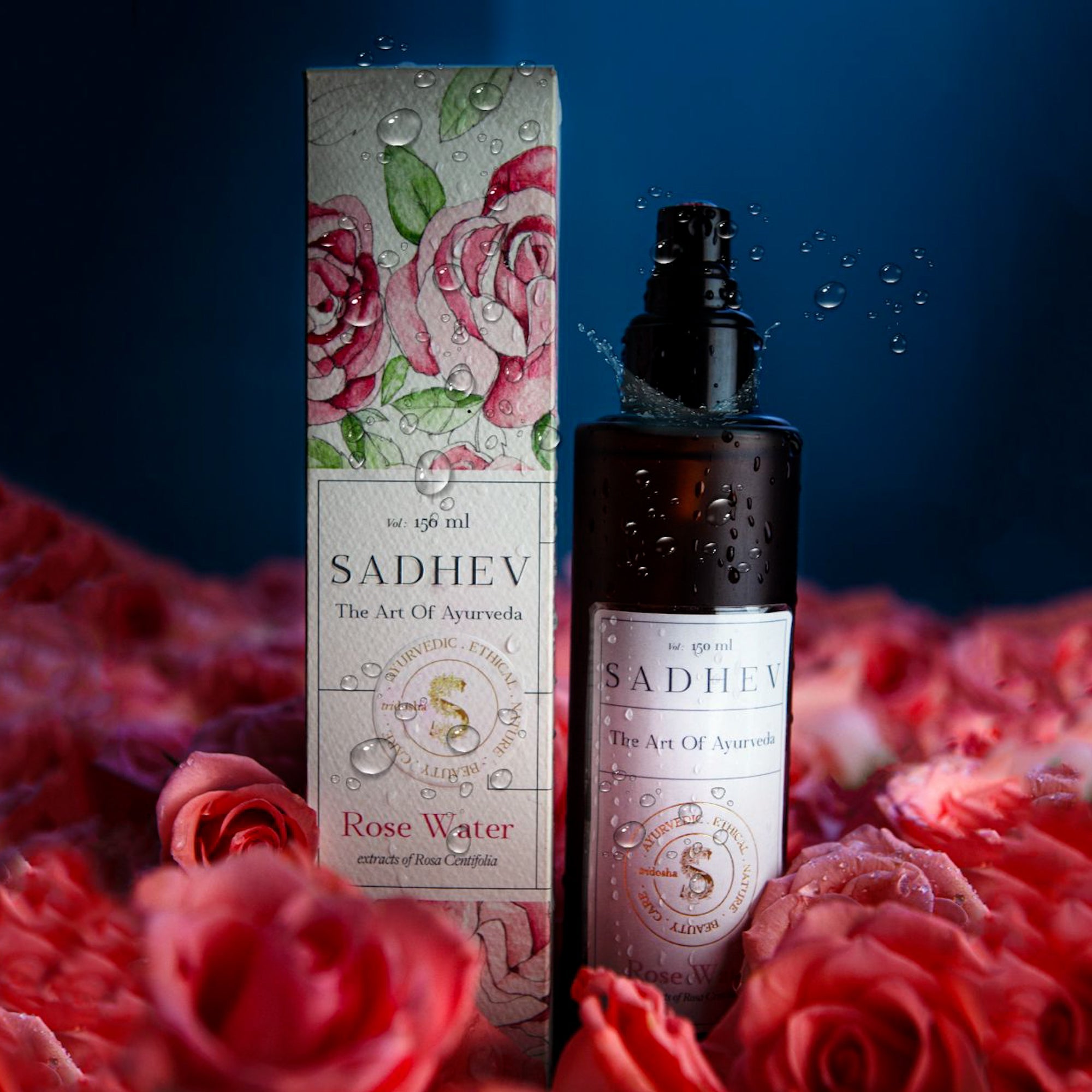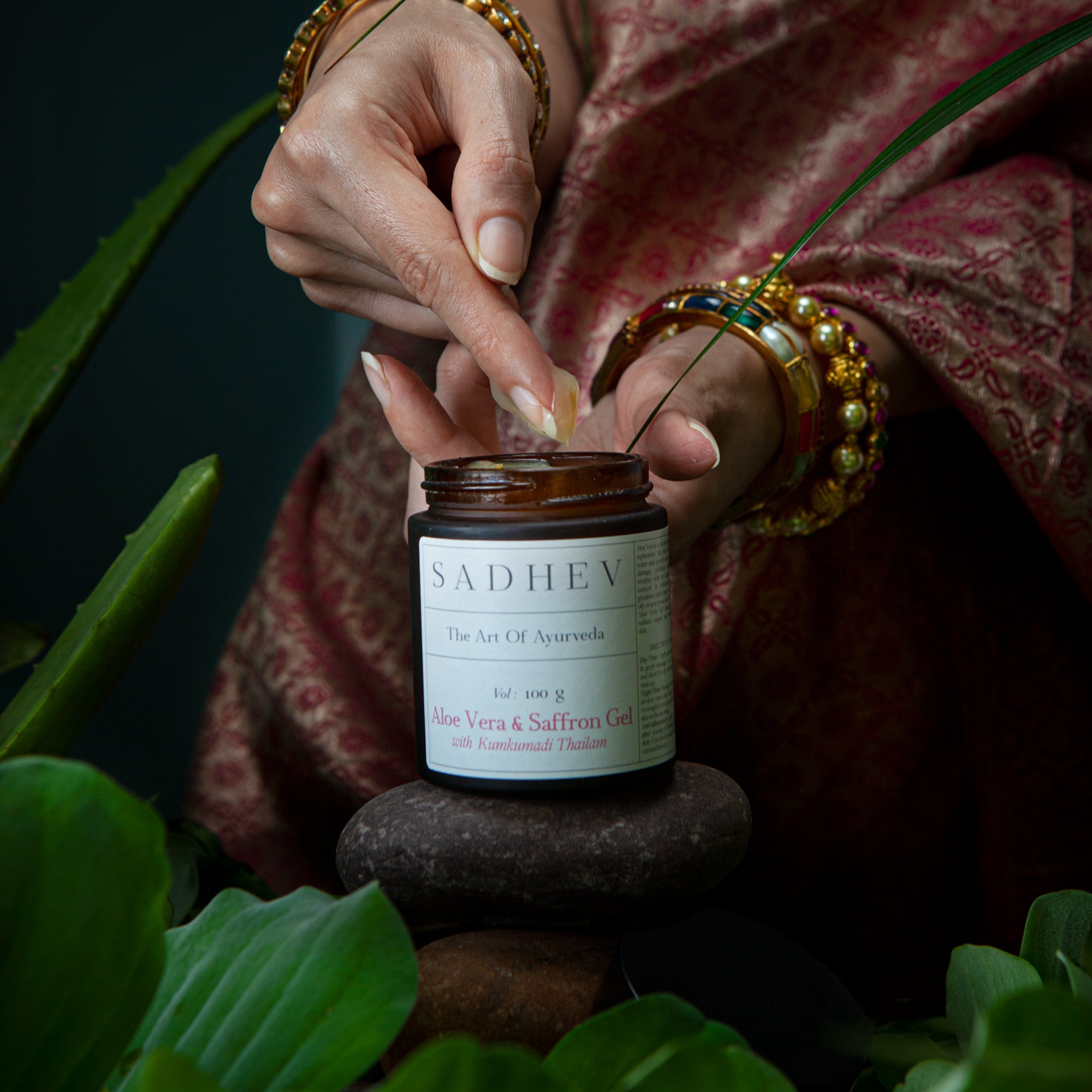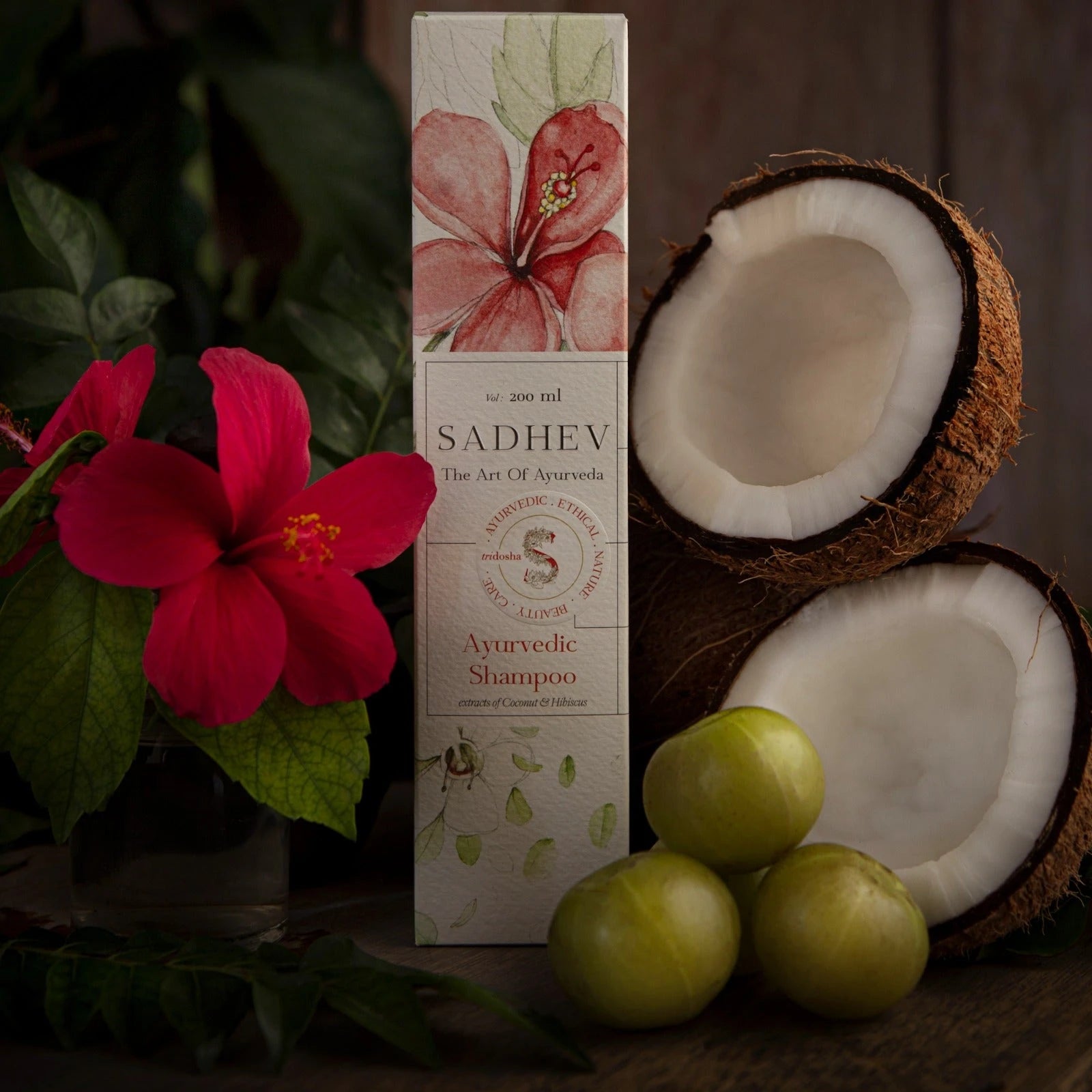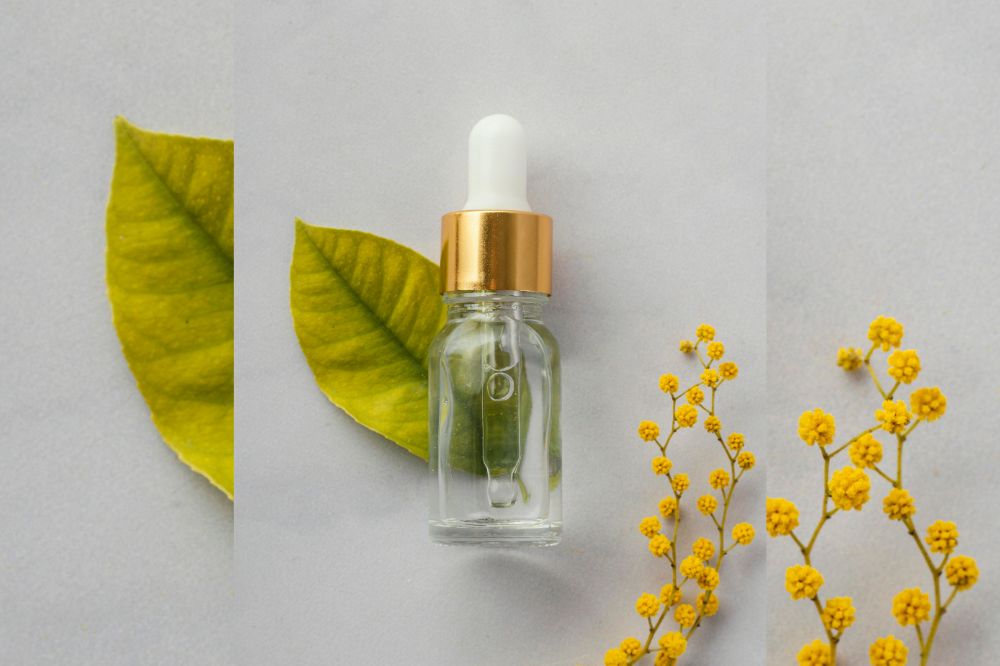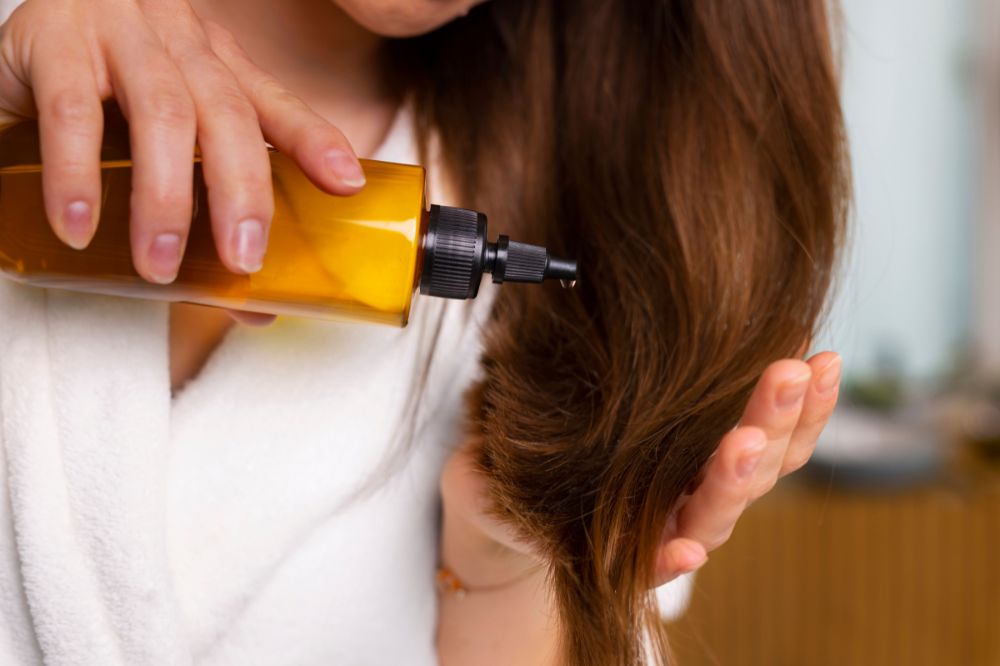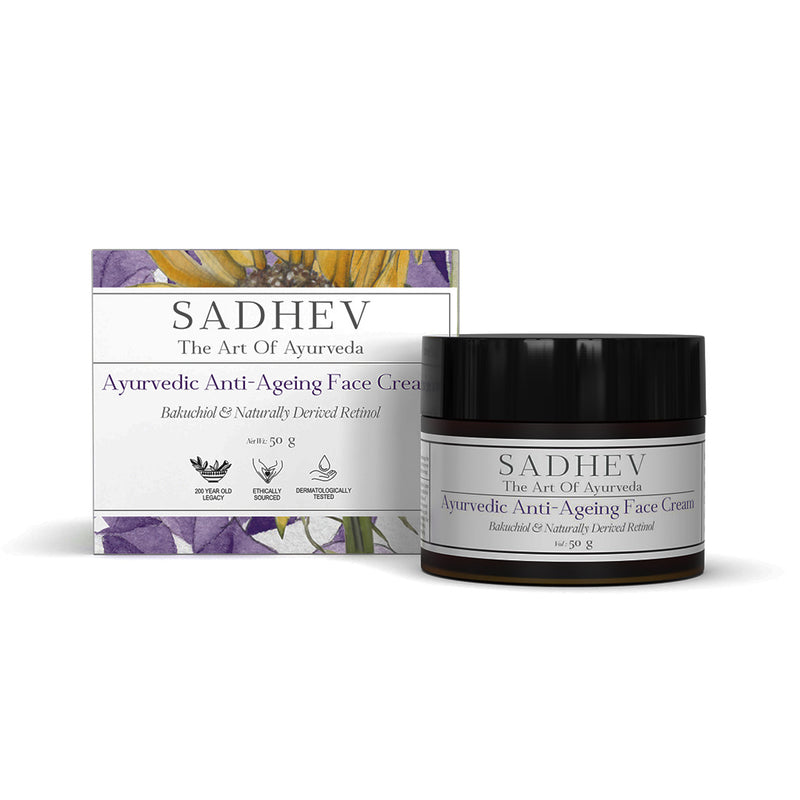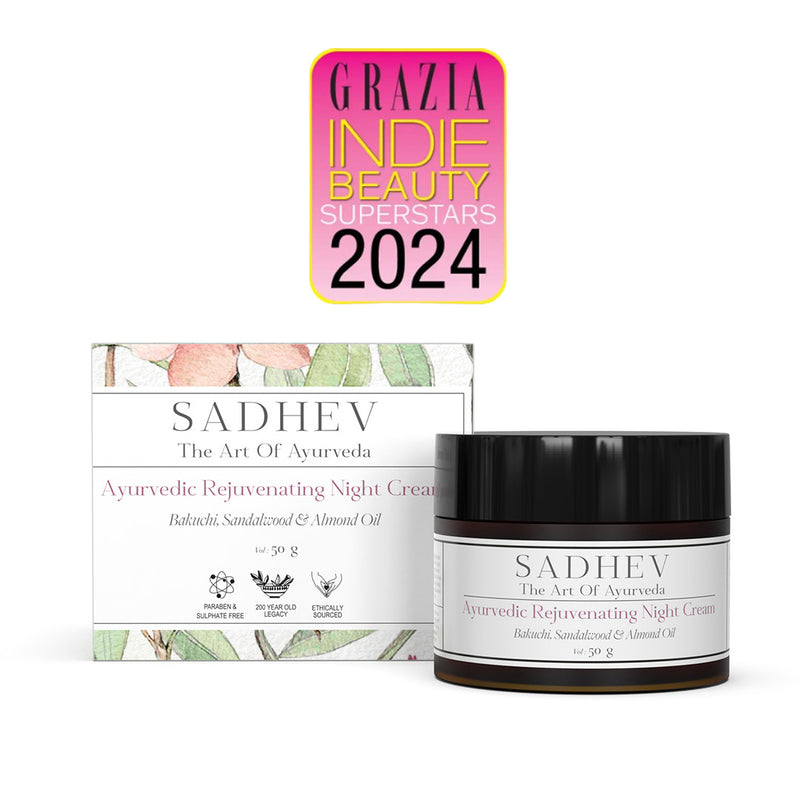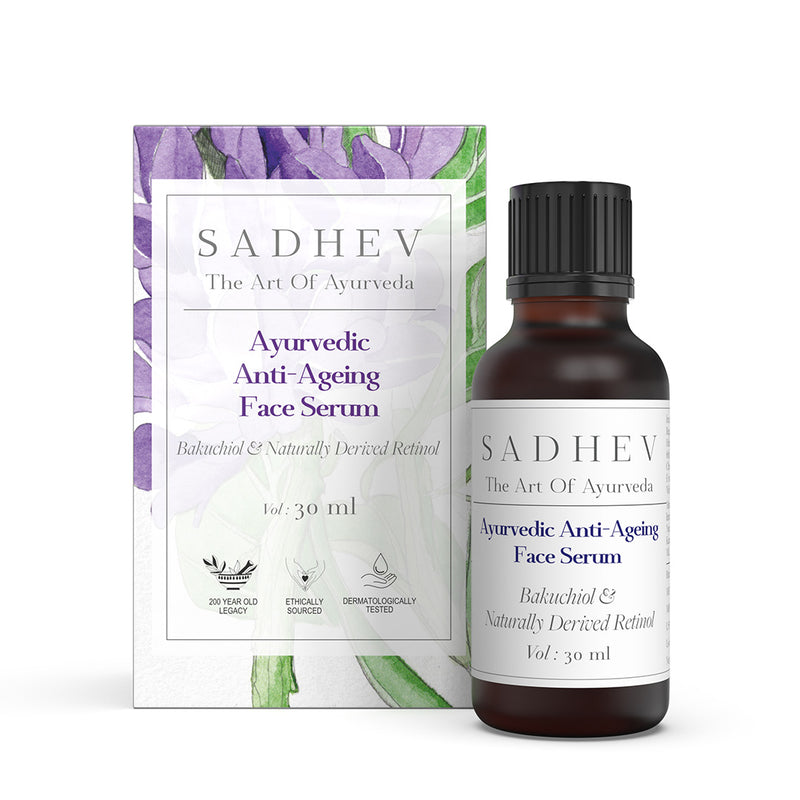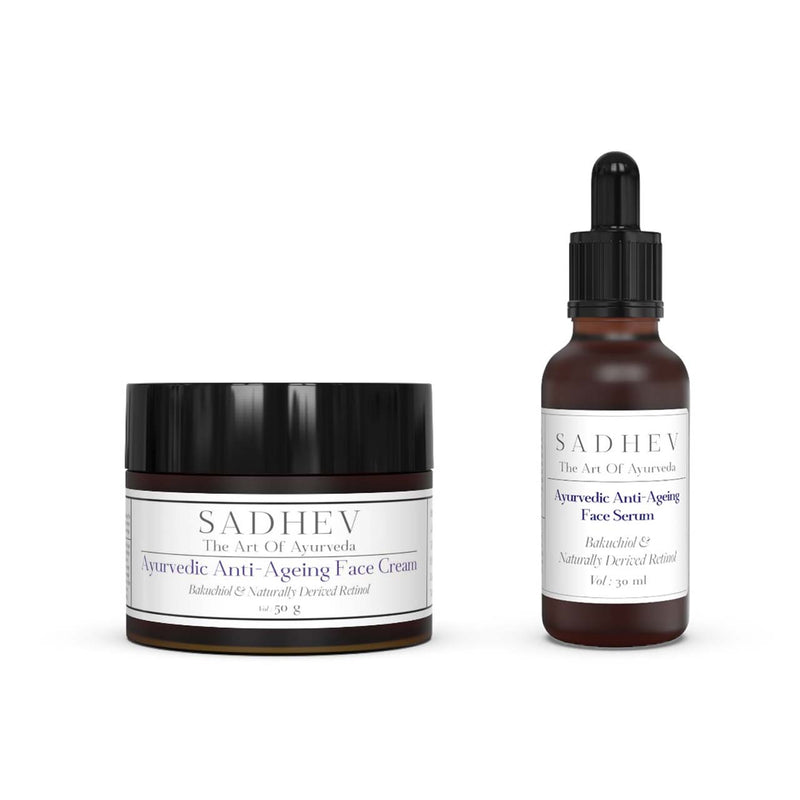Retinol is a star skincare ingredient that is known for its anti-ageing effect. No doubt, retinol can help you say goodbye to early signs of ageing like wrinkles, fine lines, and pigmentation. But let’s be real; while some people swear by its anti-wrinkle powers, others have experienced irritation, redness, and dryness.
If you've ever wondered whether retinol is your skin’s best friend or worst enemy, you’re not alone! The key is understanding the difference between natural and chemical-based retinol so you can pick the one that suits your skin best. Let’s break it down for you.
In this blog, we will tell you everything you need to know about Retinol and retinol alternatives.
What is Natural Retinol?

As the name suggests, natural retinol or naturally derived retinol basically refers to plant-based alternatives of Retinol. You must know that Retinol is a derivative of Vitamin A, which can be made chemically in the lab. But it also occurs in nature.
Natural retinol alternative offers similar benefits to traditional (chemical-based) retinol but in a gentler way. It helps reduce wrinkles, improve skin texture, and boost collagen without the irritation that synthetic retinol can cause.
So, why do we need naturally derived retinol?
Chemical retinol can have several side effects on your skin, especially if you have sensitive skin.
-
It can cause your skin to peel. It can be a painful process that can last up to several weeks if you have sensitive skin.
-
Retinol can make your skin dry and irritated.
-
Using retinol can also make your skin more sensitive to sun damage. It can also cause sunburn if you use it in the morning.
All these side effects of retinol can be tackled by using naturally derived retinol. Natural retinol alternatives are gentler on the skin and have moisturising properties.
How do you get Naturally Derived Retinol?

Here are some natural Retinol sources:
1. Bakuchiol
Bakuchiol, which is also known as bakuchi oil or babchi oil, is the most popular retinol alternative. This powerful plant extract mimics retinol’s anti-ageing effects without redness or peeling.
If you have sensitive skin, you should always look for natural anti-ageing serums with Bakuchiol retinol alternative.
Read this blog to know about bakuchiol oil benefits for skin and its uses.
2. Mastic Tree Resin
The resin derived from the Mastic tree is a rich source of vitamin A. Mastic tree is a small tree native to the Mediterranean Basin. This innovative natural source of retinol is gentle and hydrating.
3. Sea buckthorn oil
Sea buckthorn oil is loaded with antioxidants, vitamins A, C, and E, and omega fatty acids. It deeply nourishes the skin, promotes regeneration, and helps repair damaged cells, making it a great alternative to retinol.
4. Rosehip oil
Rosehip oil is a natural source of vitamin A, making it an excellent natural alternative to retinol. Unlike synthetic retinol, it is gentle on the skin and does not cause dryness or peeling. Read this blog to know the benefits of rosehip oil.
Difference Between Natural Retinol & Chemical Based Retinol
If you are still wondering how natural retinol alternatives are different from chemical-based retinol, let us explain the difference in detail.
1. Source of Retinol:
Retinol alternative natural comes from plant-based ingredients like bakuchiol and rosehip oil.
On the other hand, chemical-based retinol is made in the lab and belongs to the vitamin A family, including retinoic acid and retinaldehyde.
2. Strength & Effectiveness:
Natural retinol is gentler on the skin and works slowly over time. It’s great for sensitive skin.
Chemical-based retinol works faster and delivers stronger results, but it may cause irritation, redness, or peeling, especially if you have sensitive skin.
3. Skin Sensitivity & Side Effects:
Natural retinol is less likely to cause irritation and is safe for pregnant women.
Chemical-based retinol can make skin more sensitive to sunlight and may cause dryness. It is not considered safe for pregnant women.
Also, read this blog to know the difference between retinoid vs retinol
What are The Benefits of Plant Base Natural Retinol?
Plant-based natural retinol is as effective as retinol when it comes to anti-ageing. It has milder effects than chemical retinol, but bakuchiol extract alternative to retinol definitely has some benefits over retinol.
1. Gentle on the Skin
Plant-based retinol alternatives like bakuchiol and rosehip oil are less likely to cause irritation, redness, or dryness, making them suitable for sensitive skin.
2. Anti-Aging Properties
Bakuchiol retinol alternative helps reduce the appearance of fine lines, wrinkles, and age spots by boosting collagen production and improving skin elasticity.
3. Suitable for All Skin Types
Natural retinol is safe for all skin types, including sensitive and acne-prone skin, and is often recommended for those who cannot tolerate chemical retinol.
4. Hydrating and Nourishing
Natural retinol alternatives often contain essential fatty acids that moisturise the skin. It also helps to improve skin texture.
5. Safe for Daily Use
Unlike chemical-based retinol, plant-based versions are gentle enough for daily use without causing sensitivity or peeling.
Explore this blog to know about the natural retinol skin care routine.
What is a natural alternative to retinol available at Sadhev?
Let us have a look at the Retinol alternative available at Sadhev:
1. Ayurvedic anti-wrinkle cream
Formulated with bakuchiol and naturally derived retinol, Sadhev’s Ayurvedic anti-wrinkle cream effectively reduces visible wrinkles and fine lines, giving you a youthful look. It also deeply hydrates and nourishes your skin to give you a healthy glow.
2. Anti-wrinkle serum
Sadhev’s anti-ageing face serum is the perfect anti-wrinkle serum for all skin types. Its magic ingredients are naturally derived retinol from mastic resin and bakuchiol, an alternative to retinol that does not irritate your skin and is suitable for sensitive skin.
How To Use Natural Sources of retinol for skin?
Using natural retinol alternatives like bakuchiol extract alternative to retinol can help improve skin texture, reduce wrinkles, and boost hydration. But to get the best results, you should use the retinol alternative natural in the correct way.
Here’s how to use them effectively:
-
Cleanse Your Face
Start with a gentle cleanser to remove dirt, oil, and makeup. Clean skin absorbs natural retinol alternatives better. You should use Ayurvedic face cleansers for a gentle and nourishing cleaning.
-
Apply a Few Drops
Take 2-3 drops of Ayurvedic anti-ageing serum or cream and gently massage it into your skin. You can apply it directly on your face and neck.
-
Use at Night or Day
Unlike synthetic retinol, natural retinol alternatives don’t cause sun sensitivity. You can use them in both your morning and nighttime skincare routine.
-
Wear Sunscreen (If Used During the Day)
Even though natural retinol alternatives are gentler, protecting your skin from UV damage with SPF is always a good idea. You should opt for Ayurvedic sunscreen for best results. You can check out Sadhev’s chemical-free natural sunscreen.
-
Be Consistent
Use Ayurvedic natural retinol regularly. Since natural ingredients work gently, it may take a few weeks to see visible results.
Conclusion
Plant-based natural retinol alternative offers a gentle yet effective way to achieve healthier, youthful skin without the harsh side effects of chemical retinol.
If you want the maximum benefits of an anti-ageing serum, buy Sadhev’s natural and 100% Ayurvedic anti-ageing serum. Sadhev also offers Ayurvedic anti-ageing cream with Bakuchiol and natural retinol.
At Sadhev, we focus on making Ayurvedic products that are vegan, cruelty-free, and ethically sourced. You can check out our range of Ayurvedic skincare products, hair care range, and body care products.
Faqs on Natural Alternative of Retinol
1. What is a natural alternative of retinol in India?
Bakuchiol, found in the Babchi plant, is a popular natural retinol alternative in India. It offers anti-ageing benefits without irritation. Other options include rosehip oil and sea buckthorn oil, both rich in vitamin A and antioxidants that support healthy, youthful skin.
2. What is a natural alternative of retinol for wrinkles?
Bakuchiol is the best plant-based alternative for reducing wrinkles. It works like retinol by boosting collagen and improving skin elasticity but without dryness or irritation. Rosehip oil, rich in vitamin A, also helps smooth fine lines and keep skin firm.
3. What is a natural alternative of retinol for acne?
Bakuchiol and rosehip oil are great natural options for acne-prone skin. They help reduce breakouts, fade scars, and control excess oil while being gentle on the skin. These ingredients also have anti-inflammatory properties, making them suitable for sensitive or irritated skin.
4. Which essential oil is like retinol?
Rosehip oil is one of the closest essential oils to retinol, as it naturally contains vitamin A derivatives. Carrot seed oil is another option known for its ability to promote skin renewal and improve texture without the harsh effects of synthetic retinol.
5. Is there plant-based retinol?
Yes, plant-based retinol alternatives like bakuchiol, rosehip oil, and sea buckthorn oil offer similar benefits to synthetic retinol. They help with anti-ageing, acne, and skin renewal while being milder and more suitable for sensitive skin.

































